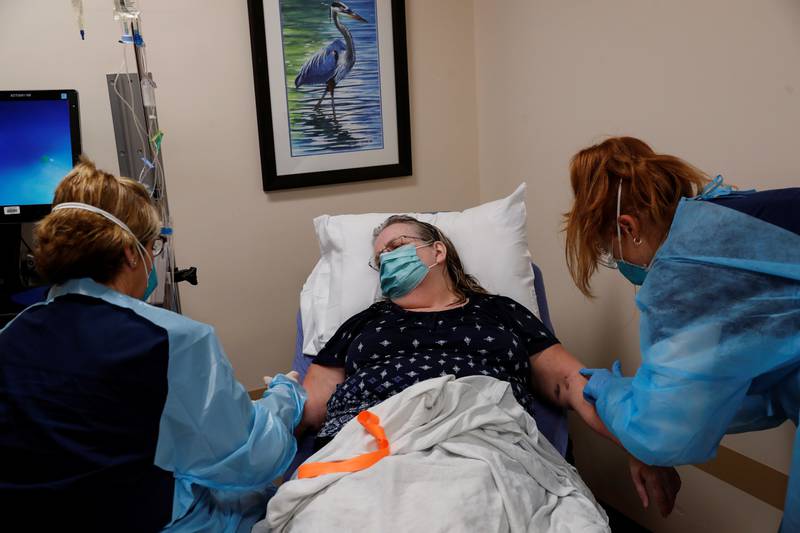A treatment combining two antibodies (casirivimab and imdevimab) is recommended for two specific groups of patients with covid-19 by a WHO Guideline Development Group (GDG) panel of international experts and patients in The BMJ today.
The first are patients with non-severe covid-19 who are at the highest risk of hospitalisation and the second are those with severe or critical covid-19 who are seronegative, they have not mounted their own antibody response to covid-19.
The first recommendation is based on new evidence from three trials that have not yet been peer-reviewed, but show that casirivimab and imdevimab probably reduce the risk of hospitalisation and duration of symptoms in those at highest risk of severe disease, such as unvaccinated, older, or immunosuppressed patients.
This second recommendation is based on data from the RECOVERY trial showing that casirivimab and imdevimab probably reduce deaths (ranging from 49 fewer per 1,000 in the severely ill to 87 fewer in the critically ill) and the need for mechanical ventilation in seronegative patients.
For all other covid-19 patients, any benefits of this antibody treatment are unlikely to be meaningful.
Casirivimab and imdevimab are monoclonal antibodies that when used together bind to the SARS-CoV-2 spike protein, neutralising the virus’s ability to infect cells.
The recommendations are part of a living guideline, developed by the World Health Organization with the methodological support of MAGIC Evidence Ecosystem Foundation, to provide up to date, trustworthy guidance on the management of covid-19 and help doctors make better decisions with their patients.
Living guidelines are useful in fast moving research areas like covid-19 because they allow researchers to update previously vetted and peer reviewed evidence summaries as new information becomes available.
The panel acknowledged several cost and resource implications associated with this treatment, which may make access to low and middle income countries challenging. For example, rapid serological tests will be needed to identify eligible patients who are severely ill, treatment must be given intravenously using specialist equipment, and patients should be monitored for allergic reactions.
They also recognise the possibility that new variants may emerge in which casirivimab and imdevimab antibodies may have reduced effect.
However, they say given the demonstrated benefits for patients, “the recommendations should provide a stimulus to engage all possible mechanisms to improve global access to the intervention and associated testing.”
Today’s guidance adds to previous recommendations for the use of interleukin-6 receptor blockers and systemic corticosteroids for patients with severe or critical covid-19; and against the use of ivermectin and hydroxychloroquine in patients with covid-19 regardless of disease severity.

 And for severely ill patients who have no natural antibodies to covid-19
And for severely ill patients who have no natural antibodies to covid-19











.jpeg)








.png)
.png)

.png)
.png)
.png)

.png)
.png)
.png)

.png)
.png)